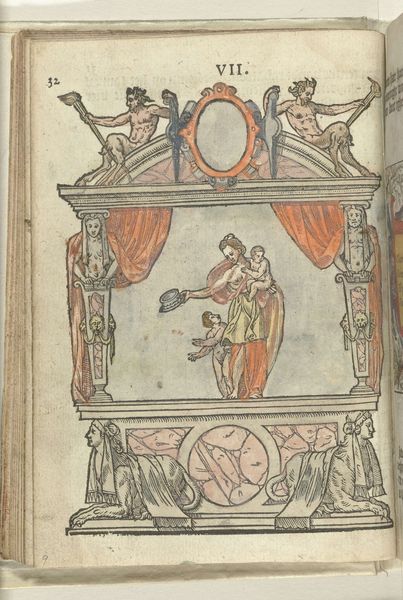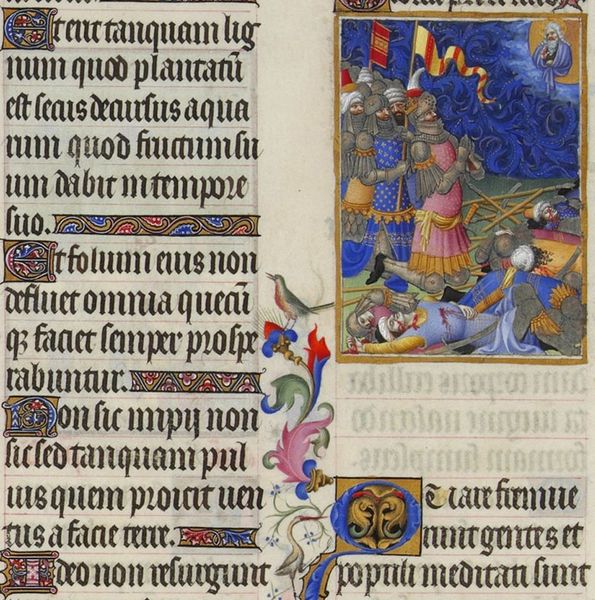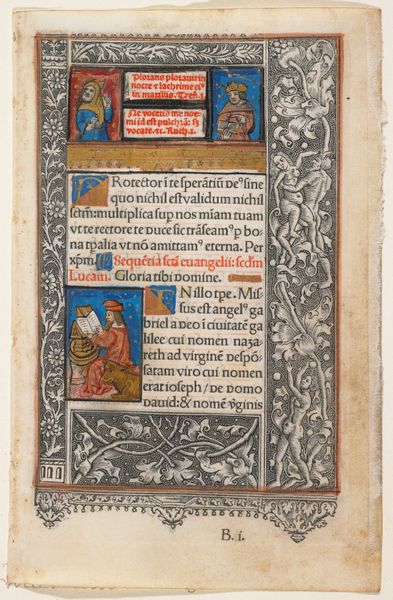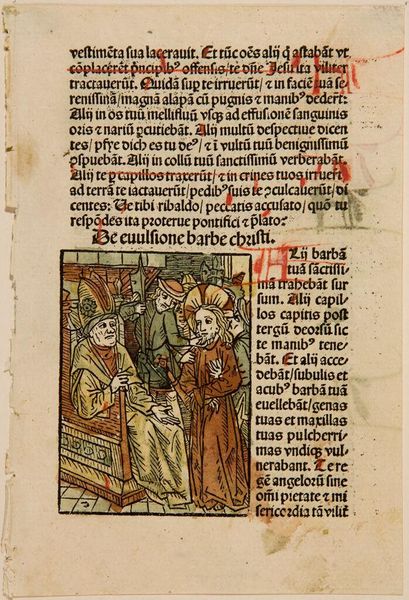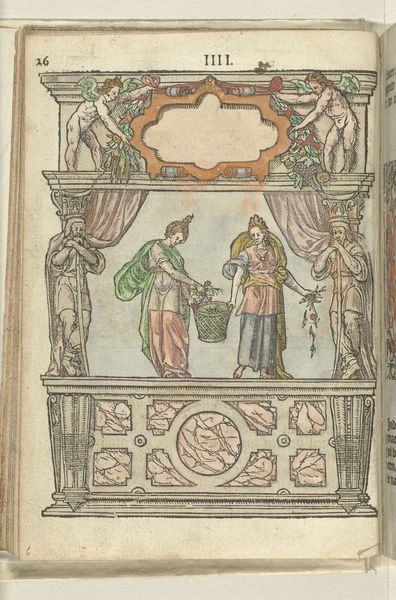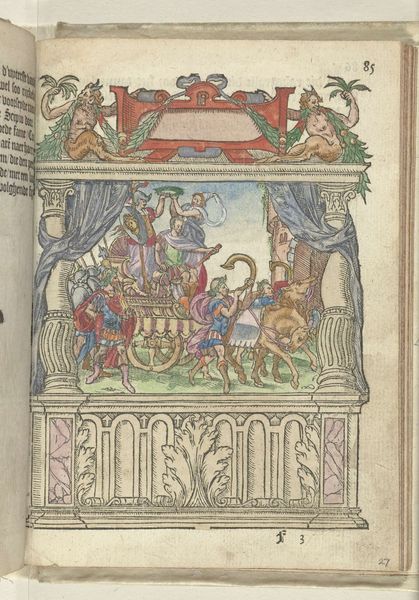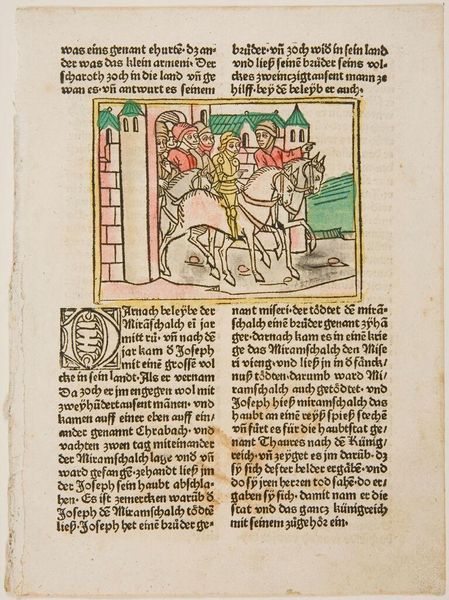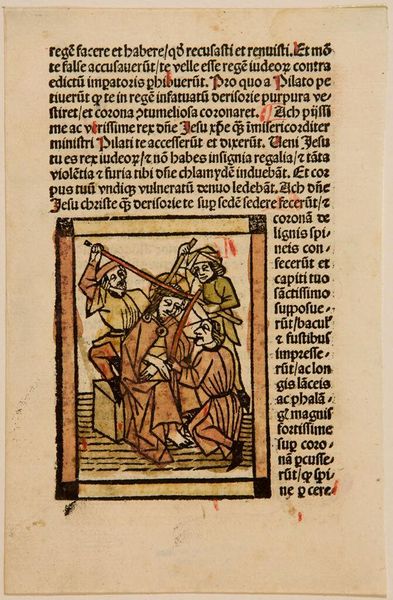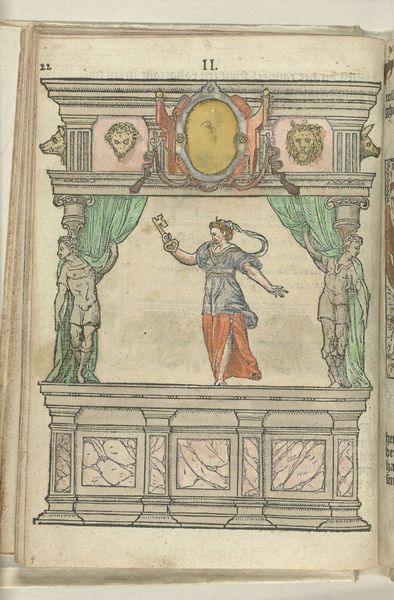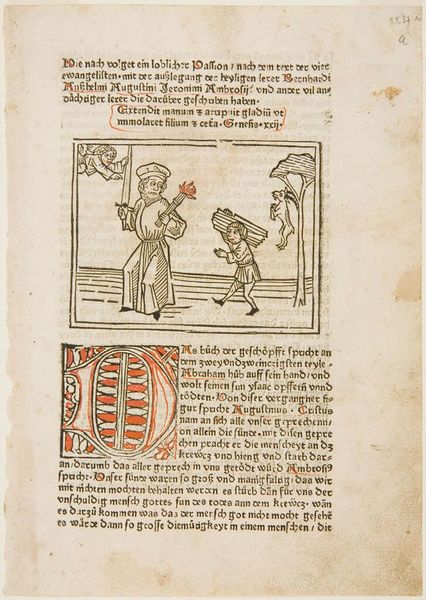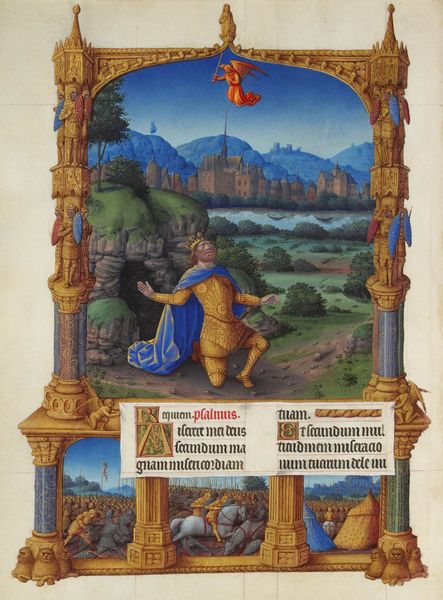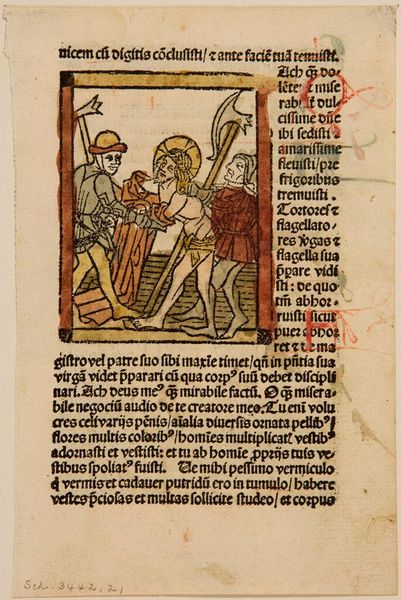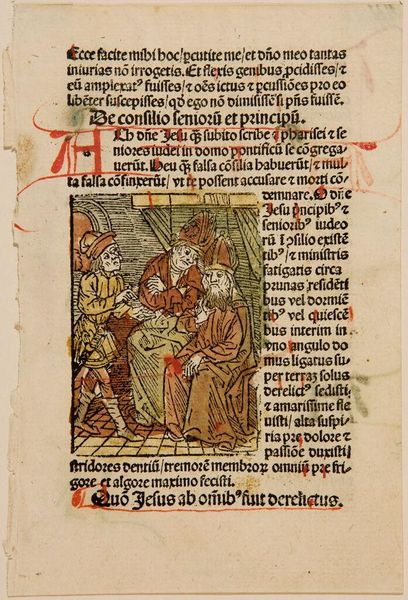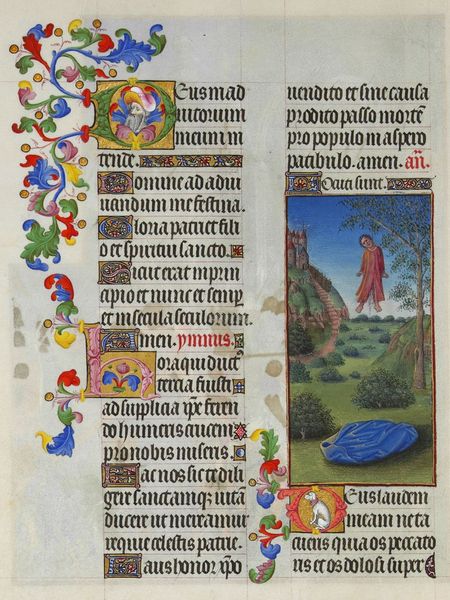
tempera, painting
#
portrait
#
medieval
#
tempera
#
painting
#
figuration
#
coloured pencil
#
coffee painting
#
france
#
italian-renaissance
#
medieval-art
#
miniature
Dimensions: 8 1/8 x 4 3/4 x 1in. (20.6 x 12.1 x 2.5cm) Other (77 folios): 8 1/16 × 4 13/16 in. (20.4 × 12.2 cm)
Copyright: Public Domain
Editor: Here we have a page from the "Book of Hours," created between 1518 and 1521, attributed to Gilles Hardouyn. It’s a miniature, incredibly detailed with vibrant colours, but the composition strikes me as a little odd with the figures arranged rather unusually. How do you interpret this work? Curator: The visual language employed here offers a rich tapestry of meaning. Notice how the central emblem is supported by winged figures—eros figures typically found in Renaissance art and clearly evocative of classical antiquity – and also take a moment to acknowledge the placement of that climbing figure amidst the branches; what does that connote for you? Editor: It’s almost heraldic, like a family crest but with these almost mischievous figures added. Is that supposed to signify anything in particular? Curator: Exactly! Heraldry itself is a system of symbols, loaded with lineage, aspiration, and power, so it is interesting to find such symbols juxtaposed with Renaissance visual language that evoked notions of free-spiritedness as inherited from classical Greece and Rome. Consider how the book of hours provided a deeply personal way to link the individual with these forms of representation and, by extension, the world at large. Editor: So, it’s about more than just personal devotion? Curator: Precisely. It is about situating oneself within a lineage of faith and visual traditions. What I find most interesting is how an emblem is actively embraced through the depiction of those children, signifying a claim and a renewed relationship between identity, inherited history, and individual ownership. Editor: I hadn't considered how the act of depicting something being carried represented agency; that's a fresh perspective for me. Thanks! Curator: It highlights the crucial role visual symbology has on cultural identity and helps create cultural continuity and personal ownership.
Comments
No comments
Be the first to comment and join the conversation on the ultimate creative platform.
